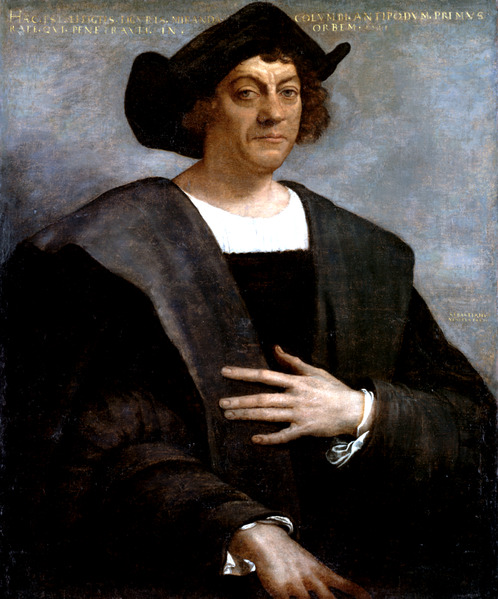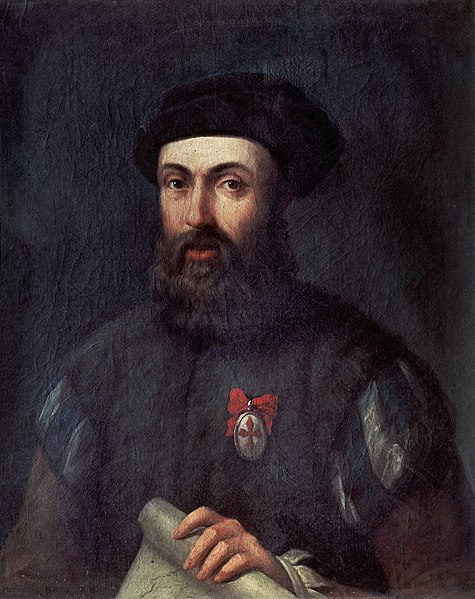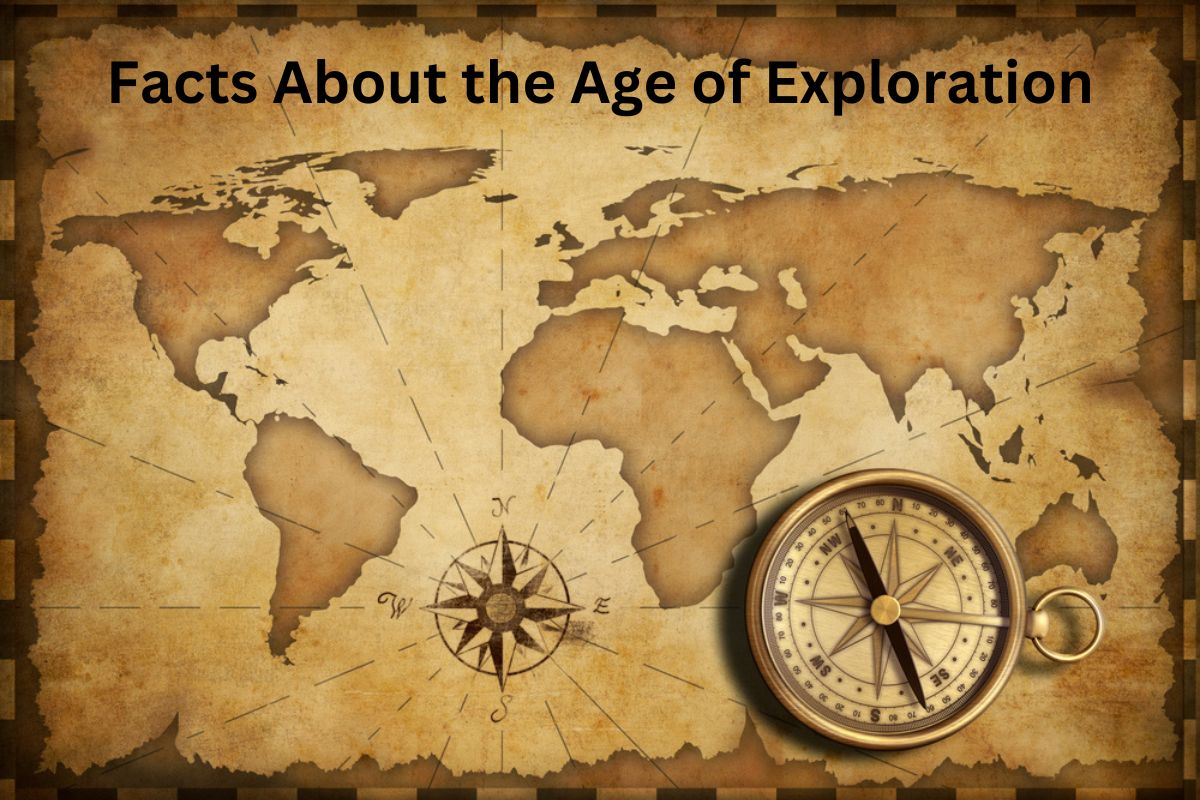The Age of Exploration, spanning from the 15th to the 17th century, was a significant period in history characterized by the daring voyages and discoveries made by European explorers.
Motivated by the desire to find new trade routes to Asia, explorers like Christopher Columbus, Vasco da Gama, and Ferdinand Magellan embarked on expeditions that reshaped the world’s knowledge, geography, and global interactions.
The exploration era led to the establishment of colonial empires, advancements in navigational techniques and shipbuilding, and profound impacts on indigenous peoples and the global economy. Additionally, it fostered scientific advancements and expanded the understanding of the natural world.
The Age of Exploration Facts
1. Occurred from the 15th to the 17th century
The Age of Exploration, also known as the Age of Discovery, spanned from the 15th to the 17th century. It was a period of intense maritime exploration and expansion undertaken by European powers. During this time, European explorers set out on voyages of discovery, seeking new lands, trade routes, and resources.
2. Motivated by the search for new trade routes to Asia
One of the primary motivations for exploration was the desire to find alternative trade routes to Asia. The established land routes to Asia, particularly those controlled by the Ottoman Empire, were arduous and expensive.
European powers sought to bypass these routes and establish direct access to the valuable trade in spices, silks, and other luxury goods from the East.

3. Christopher Columbus’s voyage in 1492 marked the beginning
Christopher Columbus’s voyage in 1492 is often regarded as the starting point of the Age of Exploration. Sponsored by the Spanish monarchy, Columbus set sail westward with the intention of reaching Asia.
However, he mistakenly arrived in the Caribbean islands and believed he had reached the Indies, leading to the misnomer “West Indies” for the Caribbean region.
Columbus’s accidental discovery opened the door to subsequent exploration and colonization of the New World, bringing about profound and far-reaching changes in the world’s history.
4. Portuguese explorers, like Vasco da Gama, played a significant role
The Portuguese played a significant role in the Age of Exploration. Under the leadership of Prince Henry the Navigator, Portuguese explorers embarked on daring voyages along the coast of Africa, seeking a sea route to Asia.
Also Read: Facts About Prince Henry the Navigator
Bartolomeu Dias became the first European to round the Cape of Good Hope in 1488, opening up a direct maritime path to the Indian Ocean. Vasco da Gama’s successful voyage to India in 1498 further solidified Portugal’s position as a pioneering maritime power.
5. Ferdinand Magellan completed the first circumnavigation of the globe
Ferdinand Magellan, a Portuguese explorer sailing for Spain, is renowned for leading the first circumnavigation of the globe from 1519 to 1522.
Although Magellan did not complete the journey himself, as he perished in the Philippines, his expedition proved that the world was indeed round and provided valuable insights into global geography and the vastness of the Earth.

6. Advancements in navigation and shipbuilding techniques were made
The Age of Exploration witnessed remarkable advancements in navigational techniques and shipbuilding. Explorers needed reliable means to navigate the open seas, leading to the development of new instruments and methods.
The caravel, a small and maneuverable sailing ship, became popular due to its versatility and ability to navigate shallow waters. Navigational tools such as the astrolabe, quadrant, and compass were refined and used extensively for determining latitude, longitude, and direction.
These advancements in technology expanded the capabilities and range of explorers, enabling them to venture further into unknown territories.
7. Impact on indigenous peoples varied, with both positive and negative consequences
The Age of Exploration had a complex impact on indigenous peoples. On one hand, it facilitated cultural exchange and the sharing of ideas, goods, and technologies between different cultures. It introduced new crops, animals, and products to different regions.
However, the encounters between European explorers and indigenous populations also led to significant challenges and negative consequences. Colonization often resulted in forced labor, exploitation of resources, and the imposition of European cultural norms and values.
Additionally, the arrival of Europeans brought diseases to which indigenous populations had little immunity, leading to devastating epidemics that decimated local communities.

8. Spanish and Portuguese established vast colonial empires
The Spanish and Portuguese, driven by the desire for wealth and power, established vast colonial empires during the Age of Exploration. Spain conquered extensive territories in the Americas, including present-day Mexico, Central America, and South America.
The Portuguese established colonies in Brazil and established a network of trading posts and territories in Africa and Asia. These colonial empires brought immense wealth and resources to the European powers, enabling them to assert dominance in global affairs for centuries to come.
9. Global trade networks and capitalism emerged
The Age of Exploration revolutionized global trade and had a profound impact on the world economy. The establishment of direct maritime routes to Asia bypassing the traditional land routes disrupted existing trading systems.
It allowed European nations to monopolize and control the lucrative spice trade, leading to tremendous wealth and economic growth.
The emergence of global trade networks and the exchange of goods, ideas, and cultures transformed Europe into the dominant economic power, laying the foundations for the capitalist system and shaping the modern world economy.
10. Exploration contributed to advancements in science and knowledge
Exploration during this period also spurred significant advancements in scientific knowledge. Explorers and naturalists documented and cataloged new species of plants, animals, and minerals, contributing to the fields of biology, botany, and geology.
The exploration of new lands and cultures fueled the growth of knowledge in areas such as cartography, astronomy, and anthropology. The discoveries made during the Age of Exploration challenged traditional beliefs and expanded the understanding of the world, setting the stage for future scientific and intellectual endeavors.
